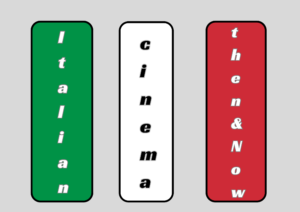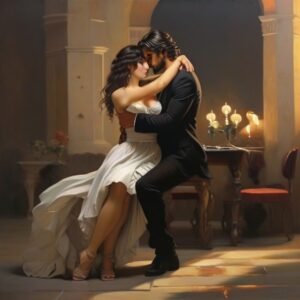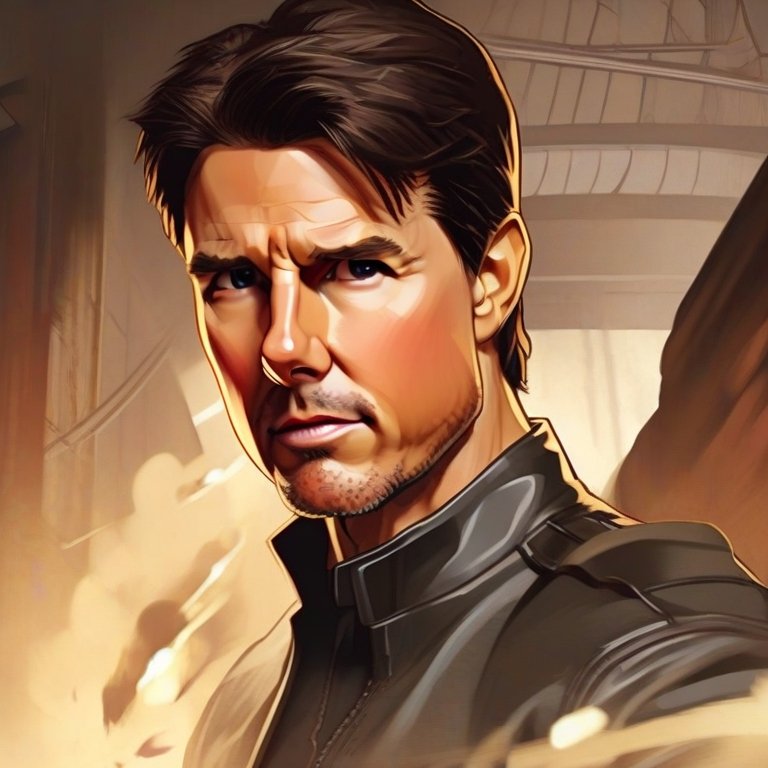
The Soul of Italian Cinema: Capturing the Essence of Italy
When it comes to romance and destination weddings, Italy is the paradise place for lovers. Additionally, Italian culture is rich and beautiful. From food to tourism and entertainment, Italy never fails to impress. Furthermore, Italian cinema has a distinct place in the field of international cinema. In fact, Italian soil has time and again produced different and heart-touching stories. As a result, romantic Italian movies then and now, are great to watch because there is poetry in Italian films; therefore, Italy holds a significant place in the hearts of movie lovers.
Each film offers a glimpse into the soul of Italy, capturing the essence of its people, its culture, and its landscapes. From the classic works of Fellini and Visconti to the contemporary gems of Italian cinema, there’s a treasure trove of romantic masterpieces waiting to be discovered.
“Timeless Romance and Iconic Vision in Italian Films”
Romance in Italian films is known for its beautiful cinematography, iconic vision, and exploration of realistic themes. Moreover, with timeless romance, Italian cinema is also blessed with a lyrical form of storytelling. Italian Cinema has spellbound audiences around the world with their gripping stories, memorable performances, and timeless topics of love, yearning, and tenacity. Most importantly, the cinematographer plays an important role in storytelling and in capturing the right emotional depth.
The actors in Italian movies bring a sense of realism and emotional depth to their roles. While most actors worldwide follow theatrical parameters while acting, Italian actors, in contrast, mostly rely on tapping into genuine human emotions. This includes getting fully immersed in the characters’ emotions and experiences. Consequently, this is achieved through extensive research, deep understanding, love for the character, and improvised acting, all of which bring a sense of truth and authenticity to their performances.
The Power of Teamwork in Italian Movies
There is a high level of trust and mutual respect between Italian directors and actors. The directors believe in their actors and give them full freedom to improvise dialogue or body language, resulting in output that feels more organic and truer to life. This teamwork brings the most compelling and memorable moments on the silver screen.
These small details and visual storytelling not only enhance the aesthetic sense of Italian cinema but also mesmerize audiences across the world, ultimately giving them a truly unforgettable viewing experience.
In addition to the creative talent of its writers, directors, and actors, Italian cinema is also known for its stunning cinematography and rich production values. From the bustling streets of Rome to the bright sunny landscapes of Tuscany, Italian films often serve as a painter to the beauty and diversity of Italian culture, its people, and places. It’s understood why 8 out of 10 films across the world have Italy as a foreign location in their film scripts. The world of Italian cinema stands as a strong example of creative genius, authenticity, and collaboration. From the actors to the directors and the entire crew, everybody seems to write visual poetry unknowingly, thereby setting the standard for cinematic excellence.
Following is a list of the best Italian movies of all time, mostly dubbed in English. By writing this article, we aim to encourage people across the world to witness not only the most beautiful but also the most elegant aspects of Italian cinema then and now.

102 Best Italian Movies of All Time Then and Now
- “La Terra Trema” (1948) – Directed by Luchino Visconti
- “Stromboli” (1950) – Directed by Roberto Rossellini
- “Miracle in Milan” (1951) – Directed by Vittorio De Sica
- “The White Sheik” (1952) – Directed by Federico Fellini
- “Umberto D.” (1952) – Directed by Vittorio De Sica
- Europa ’51” (1952) – Directed by Roberto Rossellini
- “Journey to Italy” (1954) – Directed by Roberto Rossellini
- “La Strada” (1954) – Directed by Federico Fellini
- “Il Bidone” (1955) – Directed by Federico Fellini
- “Le Amiche” (1955) – Directed by Michelangelo Antonioni
- “Nights of Cabiria” (1957) – Directed by Federico Fellini
- “Big Deal on Madonna Street” (1958) – Directed by Mario Monicelli
- “Life Is Beautiful” (1997) – Directed by Roberto Benigni
- “Cinema Paradiso” (1988) – Directed by Giuseppe Tornatore
- “The Great Beauty” (2013) – Directed by Paolo Sorrentino
- “La Dolce Vita” (1960) – Directed by Federico Fellini
- “The Bicycle Thief” (1948) – Directed by Vittorio De Sica
- “8½” (1963) – Directed by Federico Fellini
- “The Leopard” (1963) – Directed by Luchino Visconti
- “Amarcord” (1973) – Directed by Federico Fellini
- “Rome, Open City” (1945) – Directed by Roberto Rossellini
- “Yesterday, Today and Tomorrow” (1963) – Directed by Vittorio De Sica
- “The Conformist” (1970) – Directed by Bernardo Bertolucci
- “Divorce Italian Style” (1961) – Directed by Pietro Germ
- “L’Avventura” (1960) – Directed by Michelangelo Antonioni
- “Two Women” (1960) – Directed by Vittorio De Sica
- “I Vitelloni” (1953) – Directed by Federico Fellini
- “The Nights of Cabiria” (1957) – Directed by Federico Fellini
- The Garden of the Finzi-Continis” (1970) – Directed by Vittorio De Sica
- “A Special Day” (1977) – Directed by Ettore Scola
- “Cinema Paradiso” (1988) – Directed by Giuseppe Tornatore
- “The Postman” (1994) – Directed by Michael Radford
- “Malèna” (2000) – Directed by Giuseppe Tornatore
- “The Best of Youth” (2003) – Directed by Marco Tullio Giordana
- “Gomorrah” (2008) – Directed by Matteo Garrone
- “Il Sorpasso” (1962) – Directed by Dino Risi
- “The Son’s Room” (2001) – Directed by Nanni Moretti
- “The Last Emperor” (1987) – Directed by Bernardo Bertolucci
- “The Great War” (1959) – Directed by Mario Monicelli
- “Investigation of a Citizen Above Suspicion” (1970) – Directed by Elio Petri
- “Swept Away” (1974) – Directed by Lina Wertmüller
- “L’Avventura” (1960) – Directed by Michelangelo Antonioni
- “The Night of the Shooting Stars” (1982) – Directed by Paolo Taviani and Vittorio Taviani
- Big Deal on Madonna Street” (1958) – Directed by Mario Monicelli
- “The Tree of Wooden Clogs” (1978) – Directed by Ermanno Olmi
- “The Legend of 1900” (1998) – Directed by Giuseppe Tornatore
- “The Way We Laughed” (1998) – Directed by Gianni Amelio
- “Yesterday, Today and Tomorrow” (1963) – Directed by Vittorio De Sica
- The Passenger” (1975) – Directed by Michelangelo Antonioni
- “Love in the City” (1953) – Directed by Michelangelo Antonioni, Federico Fellini, and others
- “The House with Laughing Windows” (1976) – Directed by Pupi Avati
- “The Consequences of Love” (2004) – Directed by Paolo Sorrentino
- “The Best of Youth” (2003) – Directed by Marco Tullio Giordana
- “The Gospel According to St. Matthew” (1964) – Directed by Pier Paolo Pasolini
- “The Night Porter” (1974) – Directed by Liliana Cavani
- “The Garden of the Finzi-Continis” (1970) – Directed by Vittorio De Sica
- “Son of Saul” (2015) – Directed by László Nemes (Italian setting, English language)
- “Amarcord” (1973) – Directed by Federico Fellini
- “Salò, or the 120 Days of Sodom” (1975) – Directed by Pier Paolo Pasolini
- The Umbrellas of Cherbourg” (1964) – Directed by Jacques Demy
- “Investigation of a Citizen Above Suspicion” (1970) – Directed by Elio Petri
- “The Tree of Wooden Clogs” (1978) – Directed by Ermanno Olmi
- “A Fistful of Dollars” (1964) – Directed by Sergio Leone
- “Rocco and His Brothers” (1960) – Directed by Luchino Visconti
- “Padre Padrone” (1977) – Directed by Paolo Taviani and Vittorio Taviani
- “Mafioso” (1962) – Directed by Alberto Lattuada
- “Casanova 70” (1965) – Directed by Mario Monicelli
- “The Wedding Director” (2006) – Directed by Marco Bellocchio
- “A Special Day” (1977) – Directed by Ettore Scola
- “The Night of the Shooting Stars” (1982) – Directed by Paolo Taviani and Vittorio Taviani
- “The Golden Coach” (1952) – Directed by Jean Renoir
- “Mediterraneo” (1991) – Directed by Gabriele Salvatores
- “The Son’s Room” (2001) – Directed by Nanni Moretti
- “The Way We Laughed” (1998) – Directed by Gianni Amelio
- “The Best of Youth” (La meglio gioventù) – 2002, Directed by Marco Tullio Giordana
- “Respiro” (Respiro) – 2002, Directed by Emanuele Crialese
- “The Profession of Arms” (Il mestiere delle armi) – 2002, Directed by Ermanno Olmi
- “The Embalmer” (L’imbalsamatore) – 2002, Directed by Matteo Garrone
- “Ignorant Fairies” (Le fate ignoranti) – 2002, Directed by Ferzan Özpetek
- “The Wedding Director” (Il regista di matrimoni) – 2002, Directed by Marco Bellocchio
- “The Last Kiss” (L’ultimo bacio) – 2002, Directed by Gabriele Muccino
- “The Soul’s Place” (Il posto dell’anima) – 2002, Directed by Riccardo Milani
- “La Grande Bellezza” (2013) – Directed by Paolo Sorrentino
- “La Notte” (1961) – Directed by Michelangelo Antonioni
- “Boccaccio ’70” (1962) – Directed by Vittorio De Sica, Federico Fellini, Luchino Visconti, and Mario Monicelli
- “The Family Friend” (2006) – Directed by Paolo Sorrentino
- “I Am Love” (2009) – Directed by Luca Guadagnino
- “The Great Beauty” (2013) – Directed by Paolo Sorrentino
- “The Mafia Kills Only in Summer” (2013) – Directed by Pierfrancesco Diliberto
- “La Pazza Gioia” (2016) – Directed by Paolo Virzì
- “Perfect Strangers” (2016) – Directed by Paolo Genovese
- “The Invisible Witness” (2018) – Directed by Stefano Mordini
- “Dogman” (2018) – Directed by Matteo Garrone
- “The Traitor” (2019) – Directed by Marco Bellocchio
- “Pinocchio” (2019) – Directed by Matteo Garrone
- “The Life Ahead” (2020) – Directed by Edoardo Ponti
- “La Pazza Gioia” (2016) – Directed by Paolo Virzì
- “The Hand of God” (2021) – Directed by Paolo Sorrentino
- “Freaks Out” (2021) – Directed by Gabriele Mainetti
- “The First King: Birth of an Empire” (2019) – Directed by Matteo Rovere
- “The Man Without Gravity” (2019) – Directed by Marco Bonfanti
- “The Boy and the Heron” (twenty-24)


